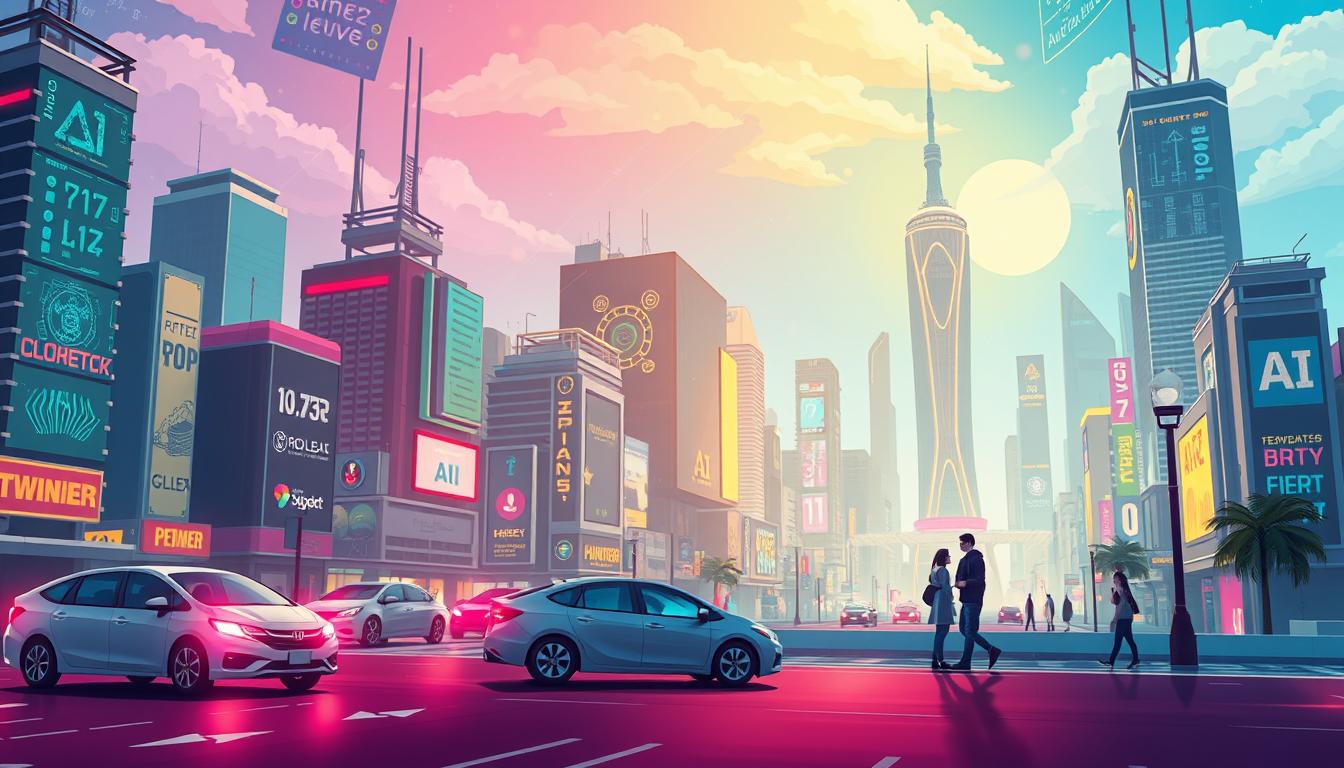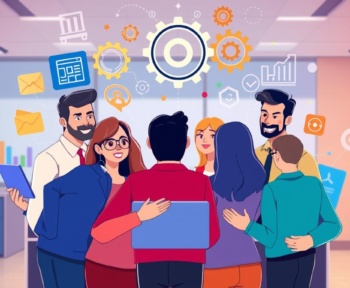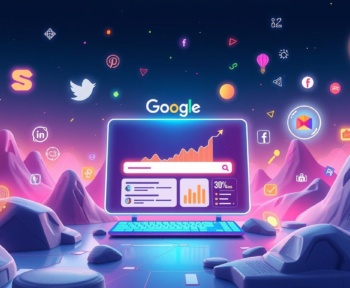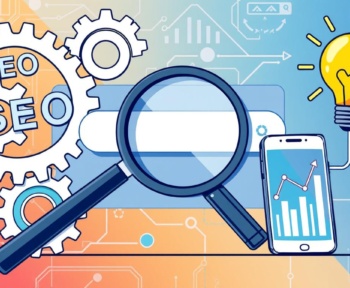As we get closer to 2025, AI is changing the world. It’s making new things possible in many areas. We will see big changes in how we live and work, thanks to AI.
AI agents will soon do tasks on their own. They will work without us telling them what to do1. These smart systems will make things easier for companies and help them reach their goals.
More people will understand AI and want it to solve problems. Governments, like the European Commission, are teaching people about AI. They want everyone to know the good and bad sides of AI1.
Key Takeaways
- AI agents will become a top technology trend, performing enterprise-related tasks autonomously by 2025.
- Generative AI will play a pivotal role in various industries, enabling machines to create content in innovative ways by 2025.
- AI technologies are expected to transform the workforce, automating repetitive tasks and allowing employees to focus on strategic, critical thinking roles.
- AI advancements in healthcare will enhance diagnostics, personalized treatment plans, and accelerate drug discovery and development.
- AI-driven cybersecurity solutions will offer real-time threat detection and fraud prevention, helping to neutralize cyber threats and financial crimes.
1. The Rise of Autonomous Systems
Autonomous systems are changing fast. They will change many industries soon. Money for self-driving cars will hit $85 billion by 20252.
AI could add $15.7 trillion to the world’s economy by 2030. It will grow a lot by 2025. This shows AI is becoming key in work for complex tasks and helping the economy grow.
Understanding Autonomous Vehicles
Autonomous vehicles are leading this tech change. They bring new levels of ease, safety, and efficiency2. Soon, we’ll see more self-driving cars on the road.
Advances in sensors, AI, and learning are making them popular fast.
Drone Applications in Various Sectors
Drone tech is also advancing. Unmanned aerial vehicles (UAVs) are used in many fields. This includes logistics, farming, emergency help, and watching the environment.
AI in drones makes them work better and safer. This changes how we tackle different tasks and problems.
As we use more autonomous systems, humans and AI will work together more. This will make things more productive, safe, and help us make better choices2. The future of these systems is very promising. We will see big changes in how we live and work soon.
“By 2030, 80% of humans will engage with smart robots daily, up from less than 10% today. Polyfunctional robots will work alongside humans, improving upon human capabilities in various environments.”
2. AI in Healthcare Innovation
The healthcare world is changing fast with AI. AI is making big changes in healthcare. It’s helping with personalized medicine and better diagnostics3.
Personalized Medicine Through AI
AI is helping make treatments just right for each person. It uses big data to create plans that work best. This means treatments are more effective and safer3.
AI-Driven Diagnostics and Predictive Analysis
AI is also improving how we find and treat diseases. It can look at medical images better than people. This helps find problems early4.
AI can also guess when diseases might start. This lets doctors act fast and help patients more3.
But, using AI in healthcare brings challenges. We must think about ethics and keep data safe. Yet, the benefits are huge, and AI will keep making healthcare better3.
“AI is accelerating drug discovery and improving patient care while reducing costs.”
| Key AI Trends in Healthcare | Impact |
|---|---|
| Hyper-personalized treatment plans | Improved therapeutic efficacy and reduced side effects |
| Early disease detection and predictive analytics | Timely intervention and better health outcomes |
| AI-powered medical imaging analysis | Increased diagnostic accuracy and efficiency |
| AI-driven workflow optimization | Enhanced operational efficiency and cost savings |
The future of healthcare with AI looks very promising. AI will help make medicine more personal and find diseases early. This will make healthcare better and cheaper3.
3. Natural Language Processing Advancements
In the world of artificial intelligence (AI), natural language processing (NLP) is very important. It changes how we talk to technology. By 2025, NLP will make customer experiences better5.
Enhanced Conversational AI
NLP and emotional AI help understand what customers feel and want. This leads to better talks with customers. AI can have deep talks and get what people really mean6.
AI can even feel what we feel. It uses predictive analytics to know what customers need before they ask5.
Multilingual Capabilities in AI Systems
The world is getting smaller, and AI needs to talk many languages. Multilingual AI can translate fast and understand different cultures6. This builds trust and loyalty with people all over the world6.
AI can now understand voice, gestures, and feelings. This makes talking to AI better and more fun6.
NLP and AI are changing how we talk to businesses. They make talks more personal and friendly. As AI gets better, being fair and open with data is key to keeping customers happy5.
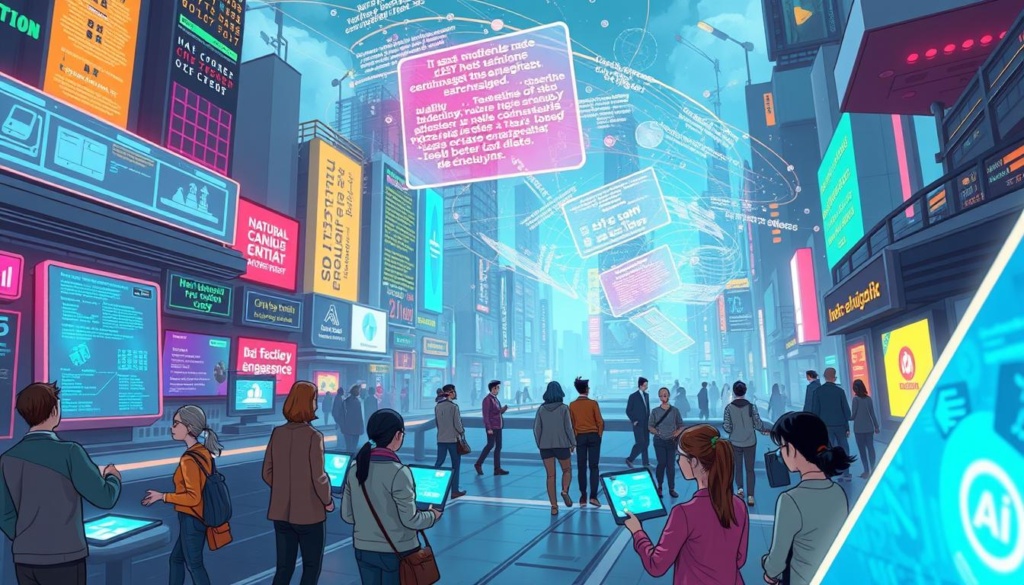
“The Conversational AI Market is predicted to grow to $49.9 billion by 2030.”5
The future of AI talks will be more fun and personal. This will make talking to businesses better for everyone.
4. AI Ethics and Governance
Artificial intelligence (AI) is getting better fast. It’s very important to use AI the right way8. AI governance platforms help make sure AI is used fairly and openly. They help keep things reliable, fair, and accountable.
The Importance of Responsible AI
Responsible AI means making AI systems that care about privacy and fairness. By 2028, companies using these platforms will have 30% more customer trust8. They will also follow rules better than others.
These platforms help companies deal with AI’s complex ethics. They make sure AI decisions match what society wants and the law says.
Emerging Regulations and Standards
More rules and standards for AI are coming. The European Union wants to make a big law for AI. UNESCO also has rules to help make AI fair for everyone.
As AI grows, these rules will be key. They will help make sure AI is used right.
AI governance platforms are very important. They help make sure AI helps everyone, not just a few. By following rules and being ethical, companies can use AI wisely.
5. AI and Cybersecurity
Artificial Intelligence (AI) is changing how we fight cyber threats. By 2028, half of all big companies will use AI to protect against fake news and cyber attacks. This is a big jump from less than 5% in 202410.
AI is key in a world where threats and fake news are getting smarter. It helps both those who protect us and those who try to harm us.
Predictive Threat Intelligence
AI is making it easier to find and stop cyber threats. It uses smart data analysis and learning to spot dangers early. This helps us make quick decisions to keep our systems safe.
Companies using AI can also earn more trust from their customers. They might even follow rules better than their rivals by 2028.
AI-Powered Defense Mechanisms
AI is helping us build strong defenses against cyber attacks. It can automatically find and fix problems, so security teams can focus on bigger tasks. By 2030, we’ll all be working with smart robots every day, a big change from now10.
AI is also making healthcare safer. Soon, it will watch over patients without them wearing any devices, by 202510.
As AI gets better, it will be more important for keeping us safe online. It will help us predict and fight cyber threats and fake news better101112.
| Adoption of AI-based Cybersecurity Solutions | 2024 | 2028 |
|---|---|---|
| Enterprises adopting products/services to address disinformation security | Less than 5% | 50% |
| Enterprises using AI governance platforms for better compliance and trust | N/A | 30% higher customer trust, 25% better regulatory compliance |
| Humans engaging with smart robots on a daily basis | Less than 10% | 80% |
6. Augmented Reality and AI Integration
Augmented Reality (AR) and Artificial Intelligence (AI) are changing how we see digital and real worlds. The AR market is growing fast, with a 33.5% CAGR expected. It could hit over $300 billion by the 2030s13. Businesses are using this tech to make things better for users and get more people involved.
In retail, AR and AI are making a big difference. By 2024, 1.7 billion people will use mobile AR13. This means shopping will be more fun and personal. AI lets AR work in dark places, making shopping even better13.
Even though AR hardware is different, WebAR is making things easier. Android phones are leading in AR, with 70.71% of the market in Q1 2024.
Enhancing User Experience with AI
AI and AR are not just for shopping. They’re changing many areas. In learning, AI finds what you need to know and adapts lessons for you. AR and VR are making learning fun, especially in healthcare and more14.
Real-Life Applications in Retail
AR and AI are changing retail. Now, you can see how things look in your home and try on clothes virtually15. AI gives you advice based on what you like. We’ll see even more cool ways to shop soon.
“The integration of AR and AI is set to redefine user experiences across industries, delivering more personalized, immersive, and engaging interactions.”
As tech gets better, AR and AI will keep changing how we see things. Businesses that use these tools will make customers happy. They’ll grow and innovate a lot131415.
7. AI for Climate Change Solutions
Artificial Intelligence (AI) is helping a lot with climate change. It helps with data analysis and renewable energy. This is making big changes in how we tackle this big problem16.
Data Analysis for Environmental Monitoring
AI is changing how we watch the environment. It uses lots of data from satellites and sensors. This helps us see deforestation and track animals better16.
AI also helps predict the weather. This means we can make better choices to fight climate change16.
AI in Renewable Energy Management
AI is making renewable energy better. It helps guess how much energy we’ll need and makes the grid work better. This makes clean energy more efficient17.
There’s also a push for “Green AI”. This means making AI less harmful to the planet. Scientists are working on making AI use less energy.
This way, AI can help us protect the environment. It’s all about making the world a better place16.
AI is key in fighting climate change. It helps us use data and energy better. This way, we can make a greener future.
8. The Growth of AI in Finance
The financial world is changing fast. Artificial intelligence (AI) is making big changes in how businesses work. AI is used in many ways, like in trading and stopping fraud.
Algorithmic Trading Developments
AI helps make trading smarter and faster. Banks use AI to look at lots of data and make quick decisions. This has made trading by computers more common.
Fraud Detection Improvements
AI is also helping fight fraud. It looks at transactions and finds odd things fast. This makes it easier for banks to keep their customers safe18.
| Company | AI-related Revenue Growth | Valuation |
|---|---|---|
| Taiwan Semiconductor (NYSE: TSM) | AI-related revenue is expected to triple in the current year and grow at a 50% CAGR in the next five years19. | Trades at 30.6 times trailing earnings and 21.8 times 2025 earnings19. |
| Workday | N/A | Strong profit margin of around 20% and a forward price-to-earnings multiple of 2920. |
| CrowdStrike | N/A | Trades at a forward price-to-earnings ratio of more than 7020. |
| SAP | N/A | Trades at a forward price-to-earnings ratio of 34, but grew sales by just 6% last year20. |
AI is changing finance for the better. It helps make customer experiences better and makes decisions smarter. AI is making finance a more exciting place for new ideas and growth18.
“By 2030, the adoption of AI in the financial services sector is expected to add $1.2 trillion in value.”18
9. Human-AI Collaboration
The future of work is changing fast. Artificial intelligence (AI) is working with humans more and more. This lets people do more creative work and work better with machines21.
Now, we need to learn new skills to keep up with AI. This is important for our jobs to grow and change22.
The Role of AI in Augmenting Workforces
By 2025, AI will be a big part of work. It will make things run smoother and help make better choices22. AI can look at lots of data fast, helping us make quicker decisions22.
AI can also do routine tasks. This means we might not need as many people. This can save a lot of money for companies22.
Training and Upskilling for Future Jobs
AI is changing how we work. It’s important for us to keep learning new things. Companies need to help their workers get better at working with AI21.
We need to learn how to think, solve problems, and be creative. These skills are hard for AI to do. They help us work well with AI21.
Working together with AI can make us more innovative and productive. This is key for companies to stay ahead in today’s fast world22. Humans and AI working together will shape the future of work.
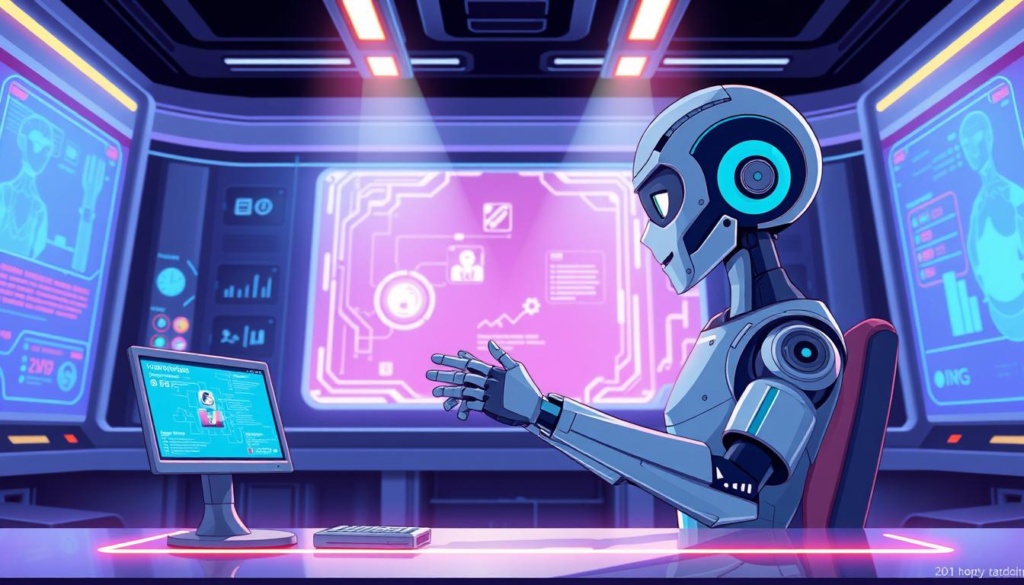
10. AI-Driven Content Creation
AI tools are changing the creative world. They help artists, writers, and marketers do new things23. By 2025, videos will be over 80% of internet traffic23. People will watch about 5 billion videos every day23.
This means businesses need to make lots of cool content. They use AI to make it personal and fun.
Empowering Writers and Marketers
Tools like Jasper help writers and marketers make great content easily24. They can write blog posts, social media, and emails fast24. This saves time and lets them focus on other things24.
AI also helps with marketing. It learns what people like and makes content better23.
The Future of Creative Industries
AI is changing the creative world a lot23. Podcasts and voice notes are getting popular23. People want content they can listen to without looking at screens23.
AR and VR will also be big. They make experiences feel real23. The future will mix human creativity with AI, opening up new ways to be creative23.
“The convergence of AI and creative industries is redefining the landscape of content production and consumption. The possibilities are endless, and the future is filled with exciting potential.”
AI is changing the creative world a lot2324. Companies that use AI will be ahead. They’ll make content that grabs people’s attention23.
The future of AI in content is here. It’s changing how we create and share things.
11. The Evolution of AI Chip Technology
AI chip technology is changing fast. This is key for the future of artificial intelligence. New tech like GPUs and quantum computing will make computers use less energy25.
The global AI market is expected to grow a lot. It will go from USD 757.58 billion in 2025 to USD 3,680.47 billion by 203425.
Advances in Hardware for AI Processing
There’s a big need for strong, efficient hardware for AI. Companies like TSMC are working hard to make better chips. They’re even building new factories, like one in Arizona26.
This new factory is making chips better than before. It’s all because of the growing need for advanced AI chips26.
The Impact of Quantum Computing on AI
Quantum computing is changing AI. It’s a big chance to make a lot of money in the next ten years25. Quantum AI could help a lot in healthcare, too25.
FAQ
What are the key AI trends that will redefine industries in 2025?
In 2025, AI will change many industries. AI agents will do complex tasks on their own. They will also make customer experiences very personal.
Companies will use AI to work better and make smarter choices. People will understand AI more, wanting it to solve real problems.
How are autonomous systems becoming a top trend for 2025?
AI agents will soon do tasks without help from humans. By 2030, 80% of people will use smart robots every day. Today, it’s less than 10%.
Polyfunctional robots will work with humans. They will do better than humans in many places.
How is AI transforming the healthcare industry?
AI is changing healthcare a lot. It helps with medical images, finds diseases early, and helps with surgery. Over 70% of healthcare people are using AI.
AI is helping find new medicines and make care better. It also helps save money.
What are the advancements in Natural Language Processing (NLP)?
Conversational AI will change customer support a lot by 2028. The market for it will grow to .9 billion by 2030.
AI can now make content that feels more human. It helps with customer support and talking to people in different languages.
Why are AI governance platforms crucial for responsible and ethical AI use?
By 2028, companies using AI governance will have more customer trust. They will also follow rules better than others.
These platforms help keep AI systems safe and fair. They make sure AI is reliable and honest.
How is AI reshaping cybersecurity?
By 2028, more companies will fight against fake news and cyber threats. Today, it’s less than 5%.
AI is making security products to fight tough threats. It helps find and stop attacks fast.
How are AI and Augmented Reality (AR) being integrated?
AI and AR are changing shopping in retail. They make shopping more personal and fun. This trend will grow, making AR more exciting.
What is the role of AI in addressing climate change?
AI is helping with climate change. It watches wildlife, tracks deforestation, and predicts weather. AI also makes renewable energy work better.
There’s a push for Green AI. It aims to make AI less harmful to the environment.
How is AI transforming the financial sector?
AI is making finance safer and more personal. It finds fraud and manages risks better. Banks use AI to serve customers better.
How is the future of work involving increased human-AI collaboration?
AI is freeing humans from boring tasks. This lets humans focus on creative work. By 2025, AI will be key in business.
AI will make work more efficient and smart. People will need to learn new skills for AI jobs.
How is AI-driven content creation revolutionizing creative industries?
AI is changing how we create content. It helps artists, writers, and marketers work faster and try new things. AI makes content for specific people, making marketing better.
The future of creative work will mix human talent with AI’s help.
What advancements in AI chip technology are crucial for the future of AI?
New AI chips are key for AI’s future. They use less energy, like GPUs and quantum computing. Quantum AI could be very valuable soon.

